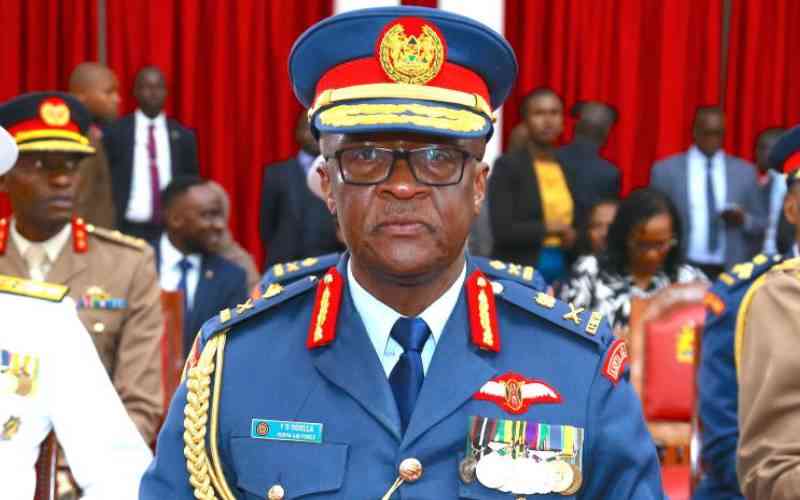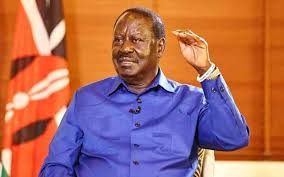Kenya: Human rights groups have supported calls by the Coalition for Reforms and Democracy (CORD) to have the security law quashed.
Katiba Institute, Kituo cha Sheria, The Refugee Consortium, and Article 19 group, in their separate submissions made yesterday, asked the court to have the Security Laws (Amendment) Act 2014 nullified. They said they find it inconsistent with the Constitution.
They argued the new law would infringe on the rights of Kenyans, the media and refugees.
"When it comes to violation of human rights, restraint should not be applied. We should not forget the history of this country as we have gone through discrimination, impunity and violation of human rights," lawyer John Khaminwa, representing Kituo cha Sheria, said.
Mr Khaminwa, in his submissions, said limitation of human rights could only be invoked after a case has been established against an accused person adding that the court's role and not the State.
He argued the Government had not provided a justifiable reason to have the contentious law in place adding that the country was already well equipped to deal with terror and criminal incidents under the current laws.
"We all condemn violence and so does this court. If you look at Westgate, Coast region violence and others in the Rift Valley the perpetrators can easily be dealt with using the ordinary criminal law in the country," he said.
The Refugee Consortium, through their lawyer John Chigiti, told the court that limiting refugees to 150,000 would be against the international agreements.
Chigiti argued that the agreements, which the country is bound by as a signatory to treaties, indebted a country to seek for assistance from the neighbouring countries in case of a refugee influx.
He said limiting the numbers would fuel corruption and discrimination as the State did not provide a criteria on how it would select those to retain.
Kenya, among other countries in the world, had agreed the refugees would not be returned to the same places where their lives and rights were in danger, the groups said.
Article 19 said the State wanted to limit access to information whereas Katiba Institute argued on the basis of the menace experienced in Parliament, saying the situation would not have allowed for proper legislation.
Religious freedom
At the same time, Commission for the Implementation of the Constitution (CIC) asked the High Court to have a broad approach in interpreting the contested clauses of the law.
Stay informed. Subscribe to our newsletter
CIC, in its court papers filed yesterday, asked the court to weigh in the purpose of the Act, its legality and the Legislature's intention in order to give a just determination.
The commission said the rights enshrined in Article 4 of the Constitution are not absolute adding that Article 24 has provided the scope in which individual rights can be limited.
The Charles Nyachae-led institution, as a friend of the court, asked it to consider the International Covenant on Civil and Political Rights (ICCPR).
It provides that a state may limit certain rights that are otherwise protected when it is necessary to protect national security, public order, public health or morals or the rights and freedom of others.
"The ICCPR includes limitations on the right to liberty of movement and the freedom to choose residence, the freedom to manifest one's religion or beliefs. Freedom of expression, the right to peaceful assembly and freedom of association. By the dint of Article 2(6) of the Constitution, these provisions form a part of the Kenyan law and should be applied as such,'' CIC, through its lawyer Paul Nyamondi, argued.
CIC said the limitation of rights must balance between the need to afford individuals their rights and the State's duty to provide and promote national security.
"Even when limiting human rights, the State will be required to protect human rights in a long term and wide scope as its purpose, and not just for the purpose of conveniences in governing," CIC said.
The commission advised the court to have the State demonstrate that societal needs outweigh individual rights and also prove that the objective of the security law is important to the society.
"It is important that this honourable court recognises that the State is the one which has a constitutional responsibility to provide national security. The court's decision ought to be informed by the State's policy supported by factual evidence and data on the realities that inform the need for limitation," CIC said.
Attorney General Githu Muigai also submitted, through Solicitor General Njee Muturi, that the law, as assented by the President, was meant to protect Kenyans.
The matter is before a five-judge bench which is to conclude the hearing today. Justices Isaac Lenaola, Mumbi Ngugi, Louis Onguto, Hillary Chemitei and Hedwig Ong'udi will give a date to deliver their decision.
 The Standard Group Plc is a
multi-media organization with investments in media platforms spanning newspaper
print operations, television, radio broadcasting, digital and online services. The
Standard Group is recognized as a leading multi-media house in Kenya with a key
influence in matters of national and international interest.
The Standard Group Plc is a
multi-media organization with investments in media platforms spanning newspaper
print operations, television, radio broadcasting, digital and online services. The
Standard Group is recognized as a leading multi-media house in Kenya with a key
influence in matters of national and international interest.
 The Standard Group Plc is a
multi-media organization with investments in media platforms spanning newspaper
print operations, television, radio broadcasting, digital and online services. The
Standard Group is recognized as a leading multi-media house in Kenya with a key
influence in matters of national and international interest.
The Standard Group Plc is a
multi-media organization with investments in media platforms spanning newspaper
print operations, television, radio broadcasting, digital and online services. The
Standard Group is recognized as a leading multi-media house in Kenya with a key
influence in matters of national and international interest.







